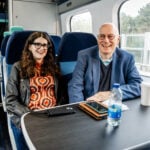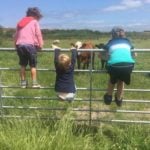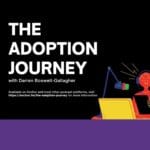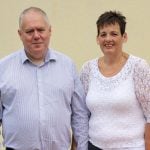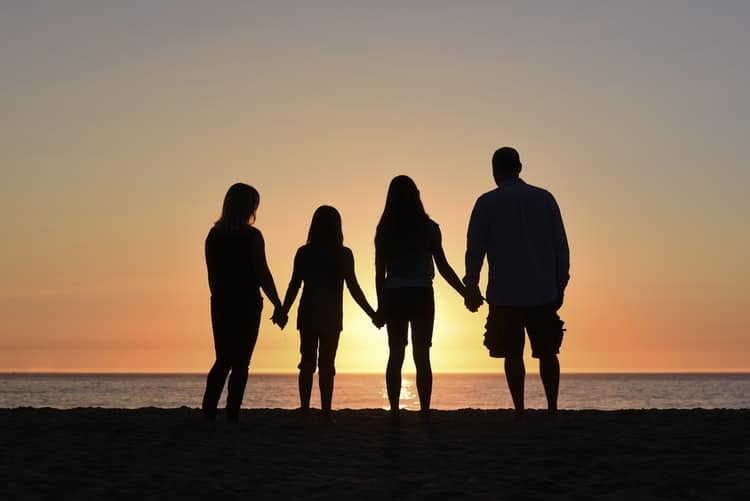
Devon adopters, Lucy and Simon, tell us how adopting was the hardest thing, but by far the best thing, they have ever done.
Before Lucy and her husband adopted, through fostering for adoption, their biggest concern was around the impact on their other daughter Beth (a young teenager) and how she would manage this big life change.
Lucy is a social worker and tells us their family’s adoption story…
My husband and I had always talked about adoption, as I had grown up in a house where my parents fostered throughout my childhood so it always felt like a natural thing to do.
As a social worker, I also have had lots of experience of the children who are placed for adoption. We were lucky to have all this experience as it made adoption a positive choice for us when we couldn’t have a birth child. My husband was already a father with his daughter, Beth, living with us. He had always wanted more children so it was an open discussion in our house.
Before we adopted our biggest concern was around the impact on Beth, as a young teenager, and how she would manage this big change in our lives. Along with this we worried about how we would be able to meet the needs of a teenager and a young child (who had experienced trauma).
Throughout our assessment we were clear that we did not wish to consider fostering for adoption, as this would not be fair on Beth – if a child was placed with us only to then return to their birth family.
It was only towards the very end of our assessment, and speaking to our extended family, that we realised that we needed to be more open to fostering for adoption because our reasons for saying ‘no’ were due reasons (as adults) and we had not fully considered the child.
We spoke at length with Beth, as did our assessing social worker and extended family members, to ensure she was fully on board and aware of the risks. In the end, we realised it was not about the process but instead about the child we were going to adopt and what we could offer.
We were clear that the best decisions would be made for a child, and if the child did have to return to their birth family, we were resilient enough to manage this. Ultimately, fostering for adoption meant that a child could come to us earlier and have fewer carers and less disruption, which would be better for them and therefore in all our interests.
We were set on having a sibling group of two and had expressed an interest in two brothers when we were contacted by our social worker about a five week old baby girl. This totally threw me, as it was so far off what we had considered.
My husband remained calm (as always) and we sat down and spoke at length about it. We made the decision to go ahead with being considered as foster for adopt carers for Libby. Within four days we had been linked and had met her. Introductions were very quick and we met her on the Saturday and she moved in on the Tuesday.
We realised immediately the importance of a good support network as within four days our family had helped kit us out for a new born baby girl. We also had incredible support from our social worker.
The reality of adopting a new born baby was hard, Libby was a very unsettled baby for the first six months of her life. She was a poor sleeper and only napped for 20 minutes at a time during the day and generally screamed throughout the evenings. This impacted on family life, my husband found starting again really hard. It was something we were not prepared for and we now realise that he had post-adoption depression. However, Libby had no awareness of this and attached to him. He said a few months in that he worried he was not attaching to Libby, and we realised that it would come with time, and as long as Libby was attaching to him that was the most important thing.
The uncertainty of ‘contact’ (with the birth family) and the Court hearings did impact on us at times. It was a worry that she may not stay with us, but we repeatedly reminded ourselves that this was still the best option for Libby even if we found it a bit nerve wracking at times. Beth quickly fitted into the big sister role and talked openly about her feelings. She did not appear to be impacted on by the Court process and managed well with the difficulties we had in settling Libby. We tried really hard to balance the needs of both children throughout.
The Court process was concluded five months after Libby was placed with us and at one point a residential assessment for the birth mum was being considered. We were committed to Libby already at this stage. And we had said that if this did happen we would wait to see the outcome, as ultimately while we were clear we were her foster carers, we knew we had to bond and love the child.
Adopting was the hardest thing we have ever done but by far the best thing we have ever done. We learnt that we needed to communicate with each other and support each other as it was a difficult start however, we have the most beautiful daughter who has a spark for life and knows she grew in our hearts and tells her friends this. We all have the strongest bond and so much love in our family.
What advice would you give to potential adopters?
My advice to adopters would be, it is hard but you need to communicate and use your support network. It is a roller-coaster but so worth it in the end. Take a breath, enjoy it as the rewards of parenting far outweigh anything else and also that our experience is that Beth was far more resilient than we ever gave her credit for.
As parents we speak about how we walk along the tightrope of whether some behaviours are because of her difficult start in life or normal development for a child of her age. We keep her early trauma in our minds but don’t dwell on it, because we don’t want it to become her identity; she is a happy, thriving little girl.
One of the discussions we have since had for the future is about direct contact and whether this is something we consider when Libby is ready. This was not something that was promoted with us but we now understand the importance of this for Libby.
We are also so glad we had the opportunity to meet her birth mum as we could reassure her about Libby and also ask the questions that we think Libby will ask us in the next few years.
